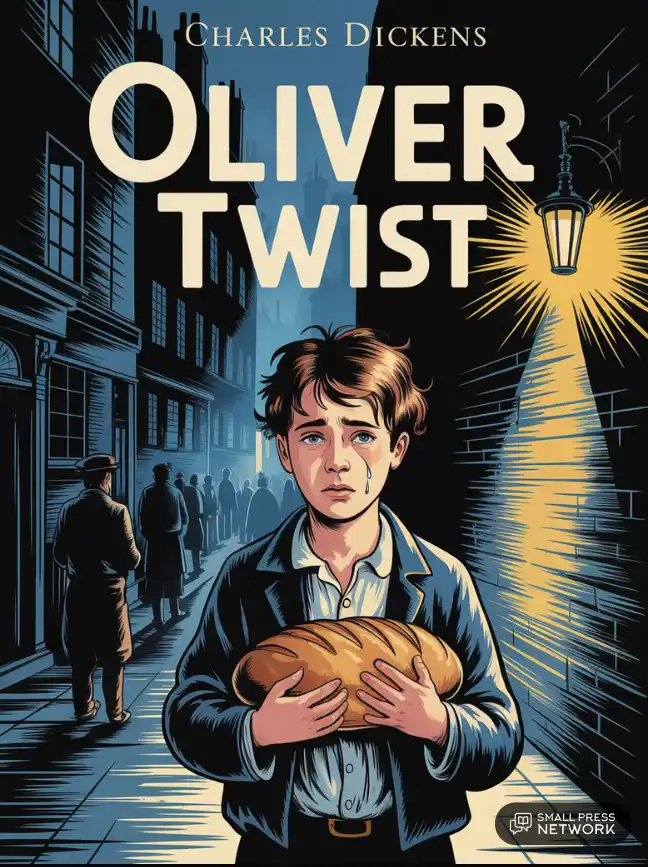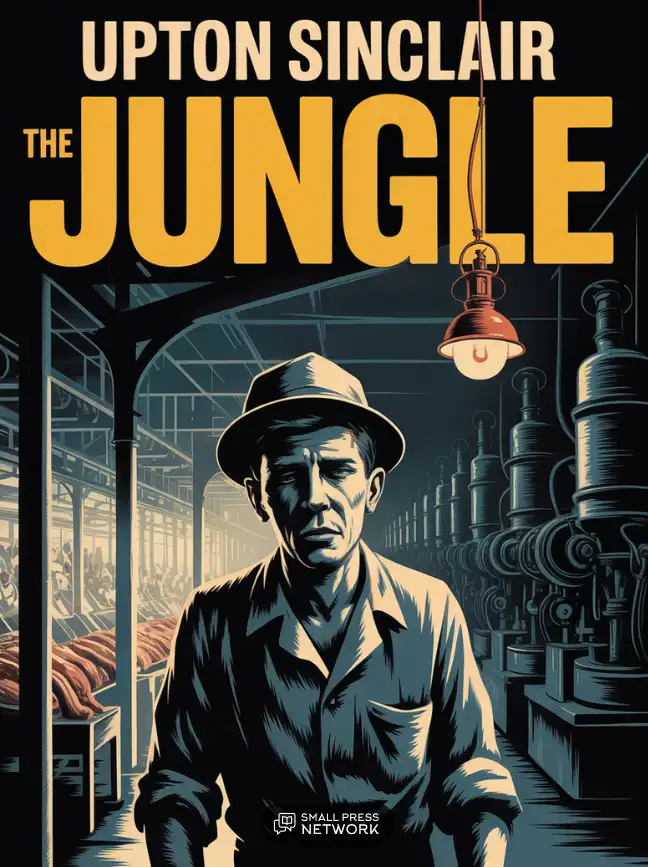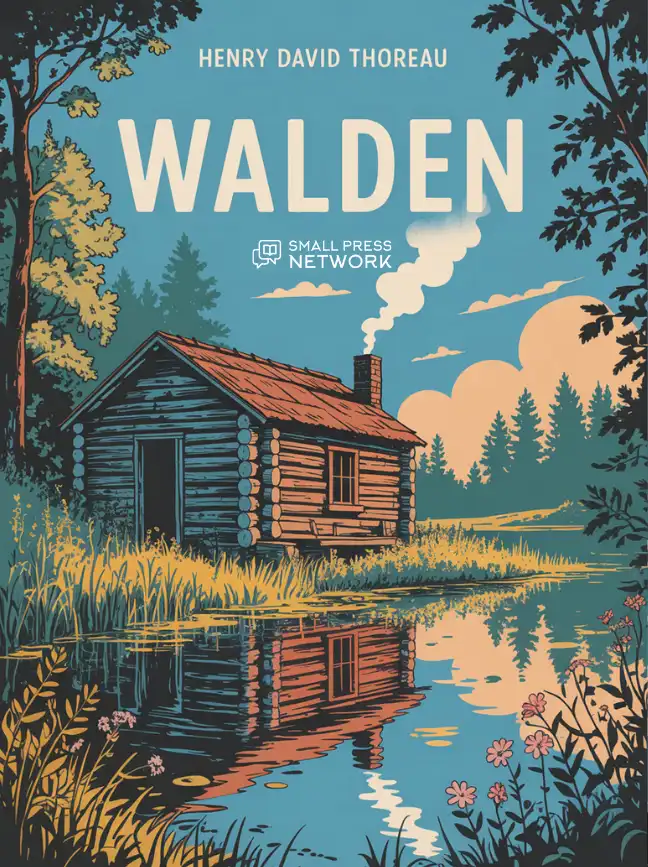.
,
,
In great families, when an advantageous place cannot be obtained, either in possession, reversion, remainder, or expectancy, for the young man who is growing up, it is a very general custom to send him to sea. The board, in imitation of so wise and salutary an example, took counsel together on the expediency of shipping off Oliver Twist, in some small trading vessel bound to a good unhealthy port. This suggested itself as the very best thing that could possibly be done with him: the probability being, that the skipper would flog him to death, in a playful mood, some day after dinner, or would knock his brains out with an iron bar; both pastimes being, as is pretty generally known, very favourite and common recreations among gentleman of that class. The more the case presented itself to the board, in this point of view, the more manifold the advantages of the step appeared; so, they came to the conclusion that the only way of providing for Oliver effectually, was to send him to sea without delay.
Mr. Bumble had been despatched to make various preliminary inquiries, with the view of finding out some captain or other who wanted a cabin-boy without any friends; and was returning to the workhouse to communicate the result of his mission; when he encountered at the gate, no less a person than Mr. Sowerberry, the parochial undertaker.
Mr. Sowerberry was a tall gaunt, large-jointed man, attired in a suit of threadbare black, with darned cotton stockings of the same colour, and shoes to answer. His features were not naturally intended to wear a smiling aspect, but he was in general rather given to professional jocosity. His step was elastic, and his face betokened inward pleasantry, as he advanced to Mr. Bumble, and shook him cordially by the hand.
“I have taken the measure of the two women that died last night, Mr. Bumble,” said the undertaker.
“You’ll make your fortune, Mr. Sowerberry,” said the beadle, as he thrust his thumb and forefinger into the proffered snuff-box of the undertaker: which was an ingenious little model of a patent coffin. “I say you’ll make your fortune, Mr. Sowerberry,” repeated Mr. Bumble, tapping the undertaker on the shoulder, in a friendly manner, with his cane.
“Think so?” said the undertaker in a tone which half admitted and half disputed the probability of the event. “The prices allowed by the board are very small, Mr. Bumble.”
“So are the coffins,” replied the beadle: with precisely as near an approach to a laugh as a great official ought to indulge in.
Mr. Sowerberry was much tickled at this: as of course he ought to be; and laughed a long time without cessation. “Well, well, Mr.
Bumble,” he said at length, “there’s no denying that, since the new system of feeding has come in, the coffins are something narrower and more shallow than they used to be; but we must have some profit, Mr. Bumble. Well-seasoned timber is an expensive article, sir; and all the iron handles come, by canal, from Birmingham.”
“Well, well,” said Mr. Bumble, “every trade has its drawbacks. A fair profit is, of course, allowable.”
“Of course, of course,” replied the undertaker; “and if I don’t get a profit upon this or that particular article, why, I make it up in the long-
run, you see—he! he! he!”
“Just so,” said Mr. Bumble.
“Though I must say,” continued the undertaker, resuming the current of observations which the beadle had interrupted: “though I must say, Mr. Bumble, that I have to contend against one very great disadvantage: which is, that all the stout people go off the quickest.
The people who have been better off, and have paid rates for many years, are the first to sink when they come into the house; and let me tell you, Mr. Bumble, that three or four inches over one’s calculation makes a great hole in one’s profits: especially when one has a family to provide for, sir.”
As Mr. Sowerberry said this, with the becoming indignation of an ill-used man; and as Mr. Bumble felt that it rather tended to convey a reflection on the honour of the parish; the latter gentleman thought it advisable to change the subject. Oliver Twist being uppermost in his mind, he made him his theme.
“By the bye,” said Mr. Bumble, “you don’t know anybody who wants a boy, do you? A porochial ’prentis, who is at present a dead- weight; a millstone, as I may say, round the porochial throat? Liberal terms, Mr. Sowerberry, liberal terms?” As Mr. Bumble spoke, he raised his cane to the bill above him, and gave three distinct raps upon the words “five pounds”: which were printed thereon in Roman capitals of gigantic size.
“Gadso!” said the undertaker: taking Mr. Bumble by the gilt-edged lappel of his official coat; “that’s just the very thing I wanted to speak to you about. You know—dear me, what a very elegant button this is, Mr. Bumble! I never noticed it before.”
“Yes, I think it rather pretty,” said the beadle, glancing proudly downwards at the large brass buttons which embellished his coat.
“The die is the same as the porochial seal—the Good Samaritan healing the sick and bruised man. The board presented it to me on Newyear’s morning, Mr. Sowerberry. I put it on, I remember, for the first time, to attend the inquest on that reduced tradesman, who died in a doorway at midnight.”
“I recollect,” said the undertaker. “The jury brought it in, ‘Died from exposure to the cold, and want of the common necessaries of life,’
didn’t they?”
Mr. Bumble nodded.
“And they made it a special verdict, I think,” said the undertaker, “by adding some words to the effect, that if the relieving officer had —”
“Tush! Foolery!” interposed the beadle. “If the board attended to all the nonsense that ignorant jurymen talk, they’d have enough to do.”
“Very true,” said the undertaker; “they would indeed.”
“Juries,” said Mr. Bumble, grasping his cane tightly, as was his wont when working into a passion: “juries is ineddicated, vulgar,
grovelling wretches.”
“So they are,” said the undertaker.
“They haven’t no more philosophy nor political economy about ’em than that,” said the beadle, snapping his fingers contemptuously.
“No more they have,” acquiesced the undertaker.
“I despise ’em,” said the beadle, growing very red in the face.
“So do I,” rejoined the undertaker.
“And I only wish we’d a jury of the independent sort, in the house for a week or two,” said the beadle; “the rules and regulations of the board would soon bring their spirit down for ’em.”
“Let ’em alone for that,” replied the undertaker. So saying, he smiled, approvingly: to calm the rising wrath of the indignant parish officer.
Mr Bumble lifted off his cocked hat; took a handkerchief from the inside of the crown; wiped from his forehead the perspiration which his rage had engendered; fixed the cocked hat on again; and, turning to the undertaker, said in a calmer voice:
“Well; what about the boy?”
“Oh!” replied the undertaker; “why, you know, Mr. Bumble, I pay a
good deal towards the poor’s rates.”
“Hem!” said Mr. Bumble. “Well?”
“Well,” replied the undertaker, “I was thinking that if I pay so much towards ’em, I’ve a right to get as much out of ’em as I can, Mr.
Bumble; and so—I think I’ll take the boy myself.”
Mr. Bumble grasped the undertaker by the arm, and led him into the building. Mr. Sowerberry was closeted with the board for five minutes; and it was arranged that Oliver should go to him that evening “upon liking”—a phrase which means, in the case of a parish apprentice, that if the master find, upon a short trial, that he can get enough work out of a boy without putting too much food into him, he shall have him for a term of years, to do what he likes with.
When little Oliver was taken before “the gentlemen” that evening; and informed that he was to go, that night, as general house-lad to a coffin-maker’s; and that if he complained of his situation, or ever
came back to the parish again, he would be sent to sea, there to be drowned, or knocked on the head, as the case might be, he evinced so little emotion, that they by common consent pronounced him a hardened young rascal, and ordered Mr. Bumble to remove him forthwith.
Now, although it was very natural that the board, of all people in the world, should feel in a great state of virtuous astonishment and horror at the smallest tokens of want of feeling on the part of anybody, they were rather out, in this particular instance. The simple fact was, that Oliver, instead of possessing too little feeling, possessed rather too much; and was in a fair way of being reduced, for life, to a state of brutal stupidity and sullenness by the ill usage he had received. He heard the news of his destination, in perfect silence; and, having had his luggage put into his hand—which was not very difficult to carry, inasmuch as it was all comprised within the limits of a brown paper parcel, about half a foot square by three inches deep—he pulled his cap over his eyes; and once more attaching himself to Mr. Bumble’s coat cuff, was led away by that dignitary to a new scene of suffering.
For some time, Mr. Bumble drew Oliver along, without notice or remark; for the beadle carried his head very erect, as a beadle always should: and, it being a windy day, little Oliver was completely enshrouded by the skirts of Mr. Bumble’s coat as they blew open, and disclosed to great advantage his flapped waistcoat and drab plush knee-breeches. As they drew near to their destination, however, Mr. Bumble thought it expedient to look down, and see that the boy was in good order for inspection by his new master: which he accordingly did, with a fit and becoming air of gracious patronage.
“Oliver!” said Mr. Bumble.
“Yes, sir,” replied Oliver, in a low, tremulous voice.
“Pull that cap off your eyes, and hold up your head, sir.”
Although Oliver did as he was desired, at once; and passed the back of his unoccupied hand briskly across his eyes, he left a tear in them when he looked up at his conductor. As Mr. Bumble gazed sternly upon him, it rolled down his cheek. It was followed by another, and another. The child made a strong effort, but it was an unsuccessful one. Withdrawing his other hand from Mr. Bumble’s he
covered his face with both; and wept until the tears sprung out from between his chin and bony fingers.
“Well!” exclaimed Mr. Bumble, stopping short, and darting at his little charge a look of intense malignity. “Well! Of all the ungratefullest, and worst-disposed boys as ever I see, Oliver, you are the—”
“No, no, sir,” sobbed Oliver, clinging to the hand which held the well-known cane; “no, no, sir; I will be good indeed; indeed, indeed I will, sir! I am a very little boy, sir; and it is so—so—”
“So what?” inquired Mr. Bumble in amazement.
“So lonely, sir! So very lonely!” cried the child. “Everybody hates me. Oh! sir, don’t, don’t pray be cross to me!” The child beat his hand upon his heart; and looked in his companion’s face, with tears of real agony.
Mr. Bumble regarded Oliver’s piteous and helpless look, with some astonishment, for a few seconds; hemmed three or four times in a husky manner; and after muttering something about “that troublesome cough,” bade Oliver dry his eyes and be a good boy.
Then once more taking his hand, he walked on with him in silence.
The undertaker, who had just put up the shutters of his shop, was making some entries in his day-book by the light of a most appropriate dismal candle, when Mr. Bumble entered.
“Aha!” said the undertaker; looking up from the book, and pausing in the middle of a word; “is that you, Bumble?”
“No one else, Mr. Sowerberry,” replied the beadle. “Here! I’ve brought the boy.” Oliver made a bow.
“Oh! that’s the boy, is it?” said the undertaker: raising the candle above his head, to get a better view of Oliver. “Mrs. Sowerberry, will you have the goodness to come here a moment, my dear?”
Mrs. Sowerberry emerged from a little room behind the shop, and presented the form of a short, thin, squeezed-up woman, with a vixenish countenance.
“My dear,” said Mr. Sowerberry, deferentially, “this is the boy from the workhouse that I told you of.” Oliver bowed again.
“Dear me!” said the undertaker’s wife, “he’s very small.”
“Why, he is rather small,” replied Mr. Bumble: looking at Oliver as if it were his fault that he was no bigger; “he is small. There’s no
denying it. But he’ll grow, Mrs. Sowerberry—he’ll grow.”
“Ah! I dare say he will,” replied the lady pettishly, “on our victuals and our drink. I see no saving in parish children, not I; for they always cost more to keep, than they’re worth. However, men always think they know best. There! Get downstairs, little bag o’ bones.”
With this, the undertaker’s wife opened a side door, and pushed Oliver down a steep flight of stairs into a stone cell, damp and dark: forming the ante-room to the coal-cellar, and denominated “kitchen”; wherein sat a slatternly girl, in shoes down at heel, and blue worsted stockings very much out of repair.
“Here, Charlotte,” said Mr. Sowerberry, who had followed Oliver down, “give this boy some of the cold bits that were put by for Trip.
He hasn’t come home since the morning, so he may go without ’em.
I dare say the boy isn’t too dainty to eat ’em—are you, boy?”
Oliver, whose eyes had glistened at the mention of meat, and who was trembling with eagerness to devour it, replied in the negative; and a plateful of coarse broken victuals was set before him.
I wish some well-fed philosopher, whose meat and drink turn to gall within him; whose blood is ice, whose heart is iron; could have seen Oliver Twist clutching at the dainty viands that the dog had neglected. I wish he could have witnessed the horrible avidity with which Oliver tore the bits asunder with all the ferocity of famine.
There is only one thing I should like better; and that would be to see the Philosopher making the same sort of meal himself, with the same relish.
“Well,” said the undertaker’s wife, when Oliver had finished his supper: which she had regarded in silent horror, and with fearful auguries of his future appetite: “have you done?”
There being nothing eatable within his reach, Oliver replied in the affirmative.
“Then come with me,” said Mrs. Sowerberry: taking up a dim and dirty lamp, and leading the way upstairs; “your bed’s under the counter. You don’t mind sleeping among the coffins, I suppose? But it doesn’t much matter whether you do or don’t, for you can’t sleep anywhere else. Come; don’t keep me here all night!”
Oliver lingered no longer, but meekly followed his new mistress.





